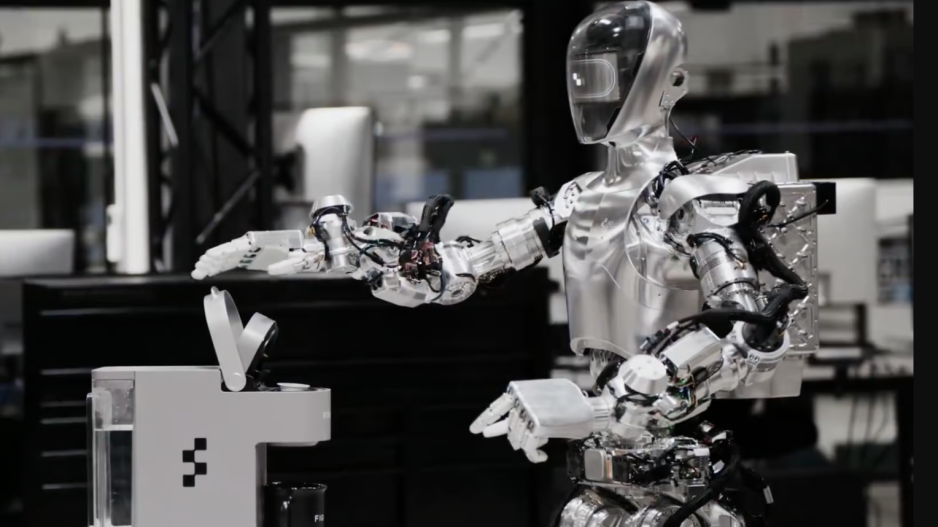Over the Weekend, a Robot Learned to Make Coffee - Here's Why It Matters
In the ever-evolving landscape of robotics, a seemingly small event over the past weekend has set the tech world abuzz. A humanoid robot, developed by Figure - a Sunnyvale-based startup, achieved a feat that might seem mundane at first glance - it learned to make coffee.
The Figure 01 humanoid robot, learned to make coffee by observing human actions for approximately ten hours. Utilizing its advanced AI and neural networks, the robot was able to watch and mimic the process of making coffee with a Keurig machine. Initially, it made mistakes, such as incorrectly placing the cup, but over time it adapted and corrected its actions. This learning approach exemplifies the robot's ability to interact with its environment and improve through experience, showcasing a significant leap in robotic learning and adaptation.
This achievement comes 24 hours after an intriguing statement from the company's CEO, foreshadowing a "ChatGPT moment" in robotics. The development is arguably a cornerstone in the world of robotics, particularly in the context of household robots.
we just had an AI breakthrough in our lab
robotics is about to have its ChatGPT moment
and that moment is happening tomorrow
— Brett Adcock (@adcock_brett) January 7, 2024
While ambitious projects like Tesla's 'Optimus' have been announced, with much fanfare, the actual rollout of such robots has been notably absent. In contrast, this weekend's breakthrough, albeit modest, is a tangible step forward. It represents a Minimum Viable Product (MVP) in the truest sense, not just a concept but a functional prototype demonstrating real-world utility.
Figure' journey towards this innovation was bolstered by substantial financial backing. In May 2023, the company raised $70 million in a Series A funding round, spearheaded by Parkway Venture Capital, along with other investors such as Aliya Capital and Bold Ventures. This funding is earmarked for the acceleration of the development and manufacturing of their first autonomous humanoid.
The implication, as expected, extends beyond the simple act of brewing coffee. It opens up a range of possibilities for robotic assistance in household tasks like folding laundry, cooking, and gardening. It’s worth noting that in Japan, the advancement of domestic robots is evident through the initiatives of companies like Toyota. The company's humanoid robots, such as the T-HR3 and Human Support Robot (HSR), are designed for various home-based tasks and remote communication, with the HSR specifically assisting the elderly and disabled. Additionally, Toyota's Kirobo Mini, a companion robot, engages in emotional interactions with users, demonstrating Japan's commitment to leveraging robotics to address societal needs and improve daily life.
Our day-to-day lives are in a constant state of evolution, increasingly shaped and redefined by technology. In recent years, this transformation has been significantly accelerated by the advent of advanced AI, particularly with the emergence of models like GPT-3 and GPT-4. While robotics has been a part of our daily routines, predominantly through devices like robotic vacuum cleaners and other relatively straightforward "smart" appliances, we're on the cusp of a more profound change. The intersection of sophisticated AI and robotics is beginning to usher in a new era of domestic automation, potentially starting with something as routine as making a cup of coffee. In the words of the futurist, author and biochemist - Isaac Asimov, "It is change, continuing change, inevitable change, that is the dominant factor in society today."






